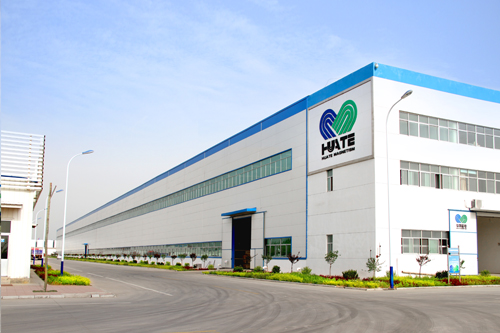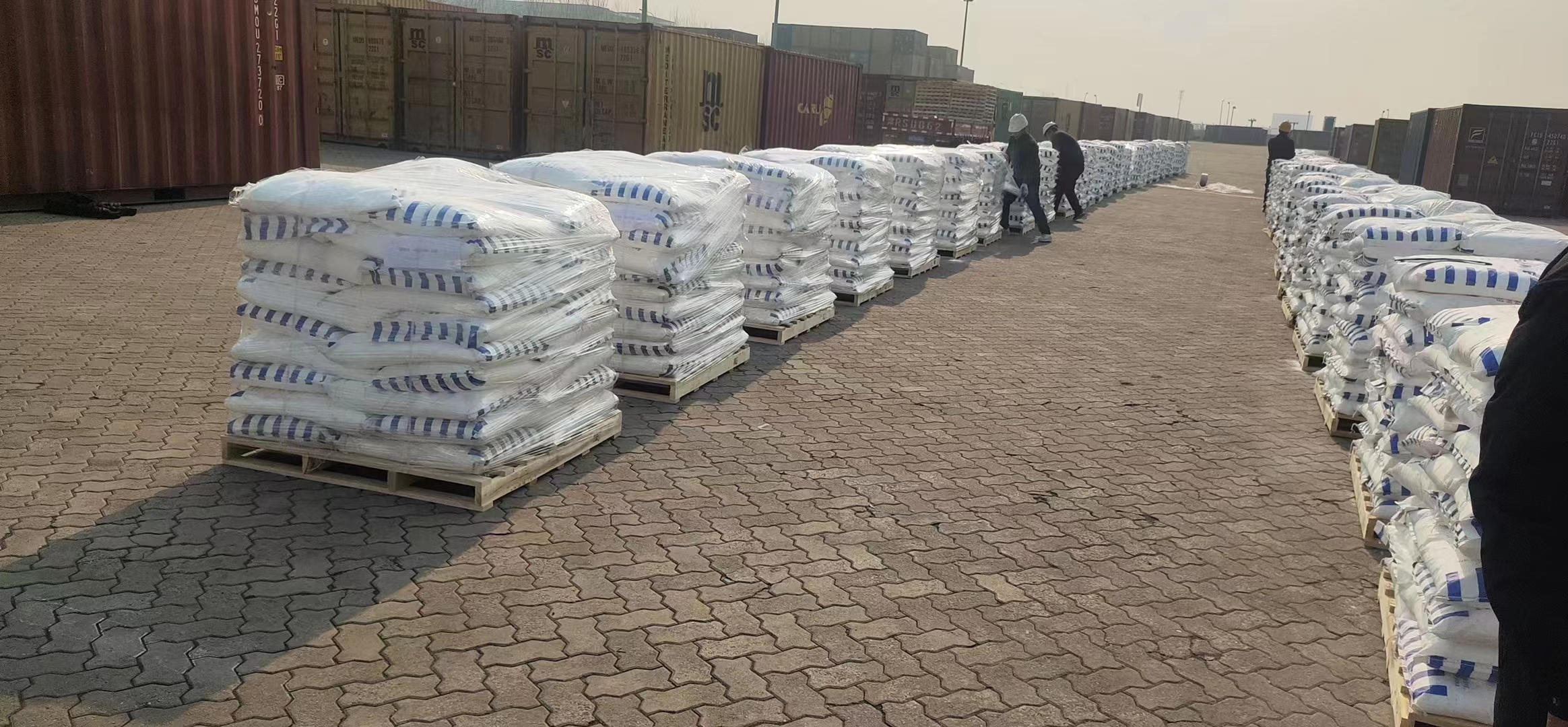Introduction
In the international push for sustainability, organic farming has often been seen as the key to environmental health and food safety. This has resulted in organic fertilisers becoming an important product that’s necessary to create good soil and good yields without the risks and negative impacts of synthetic inputs. Organic fertiliser firms are a key part of this transformation and develop firm technology for sustainable agriculture.
Organic fertiliser is a product of natural origin made of plant, animal and mineral residues and lacking synthetic chemicals. It is necessary to maintain soil fertility and ecological equilibrium since it is a slower, more natural nutrient release than chemical fertilisers. The concept of organic fertilisers starts with the way that the fertilisers are produced and work within ecosystem cycles distinguishing them from conventional fertilisers.
One of the leaders of the industry is SHANDONG LOYAL CHEMICAL CO., LTD, Reliable supplier of plant growth regulator, high quality of service and environmental friendly management. It is becoming the main direction to replace the agriculture-based agriculture with more advanced and environment-friendly agrochemical.Once you developed the skills needed to create testimonials, you can put them to use by generating longer reviews, content marketing, and sales pages.
The perspective emphasises these companies not only for what they produce, but more broadly for the consequences of products in areas such as the continuous improvement of global agriculture and the environment. As we go deeper into the functions and accomplishments of these businesses, we will find how they become a model for other companies in the field for sustainable development for agriculture.
Criteria for Ranking Organic Fertilizer Companies
Up next is the evaluation of the best organic fertilizer companies, taking into account the important factors that determine the efficiency and the impact of these companies in the market as well as on the environment. This step does not only consider the excellence in terms of operations, but it also explores the level of sustainability these companies go for.
Sustainability Practices
A dedication to sustainability is integral – from raw materials to production methods and distribution, and every step in between. Companies are generally recognised for reducing their environmental footprint or through the use of regenerative agricultural practices that re-improve soil regeneration and biodiversity – such as SHANDONG LOYAL CHEMICAL CO. , LTD.
Product Range
Equally important is a diversified product range that addresses different kinds of crops and soil conditions. For example, the best organic fertilisers enterprises cater to a wide variety of products including liquid fertilisers, composts, manures and biofertilisers. This allows them to address the needs of organic farmers across the world.
Global Reach
Spreading its presence in the market globally, this also shows the prosperity and reliability of the company. The leading societies have a strong distribution network all around the world that aids in the timely action of its delivery and ensures an efficient production of food all over the world.
Customer Satisfaction
Customer satisfaction strongly relates to the effectiveness, quality and durability of products and services, and the level of technical support from companies supplying them. Low levels of unsatisfactory products and services, unnecessary adjuncts and inefficient support are major challenges to achieving customer satisfaction, which is expected to be high. High levels of satisfaction are often an outcome of meeting or exceeding expectations of grain and crop yield and health.
Certifications and Regulatory Compliance
International standards will need to be followed, and appropriate certifications (eg, Organic Materials Review Institute (OMRI) certification or other regional organic certifications) will need to be obtained to help establish in the minds of consumers and, more particularly, commercial buyers, that the product in hand meet the standards of organic farming.
Expert Insight:
The environmentalist Jane Goodall is another who shows this awareness: ‘We must find a way to farm that is in harmony with nature,’ she says. ‘Ironically, the companies which will lead on this issue are not only helping in the battle for environmental health, but writing the script for farming the future.’
These criterias is necessary to value the organic fertilizers companies performance. This is important to stand out from the competition. With the respect of these criterias, it will improvements and meet the current market standards. By respecting these standards in the future, companies will be able to bring the world even closer to sustainability and to a dosectable future. This ranking will help stakeholders, including farmers, inverstors and regualtory agencies, to identify organic fertilizers companies that are truly making a difference.

Profiles of Top Global Organic Fertilizer Companies
Today, we’re proudly presenting some leading companies in sustainable agriculture. They not only occupy a strong position in the market, but also show a positive impact on environmental protection and new farming technology. We are showcasing SHANDONG LOYAL CHEMICAL CO., LTD and four other front-runners in the field of organic fertilizer.
SHANDONG LOYAL CHEMICAL CO., LTD
Company introduction and historical meaning:SHANDONG LOYAL CHEMICAL CO.,LTD is established in the early 2000’s,purpose is to support the high-yield and sustainable agriculture in China.Currentlly is exported all the over the world.
Products and Services: Loam Simulator offers a wide array of home and agricultural organic fertilisers including compost, liquid seaweed and bone meal-based products, in turn assisting in nutrient-rich soil-healthy plant production, without adversely affecting the earth.
Sustainability Initiatives SHANDONG LOYAL uses renewable energy in production to pursue a zero-waste manufacturing model. Wherever possible, the company’s environmental management initiatives far exceed local regulations.
Contributions to Organic Agriculture: The company actively participates in global sustainable agriculture programmes, and actively collaborates with international organisation to promote organic farming.
BioFert Manufacturing Inc.
Desciption: BioFert Manufacturing is a Canadian manufacturer of universal natural and organic eco-friendly fertilizers for cultivation of any crops type.
Innovations: BioFert uses several proprietary nutrient-delivery systems that guarantee the highest uptake by plants while minimising environmental runoff.
Sustainability Practices: I get all my raw materials from within Uganda and this therefore drastically reduces the carbon footprint of my fertilisers.
Organica Plant Nutrition
Overview: Organica Plant Nutrition from Germany has found its niche in the European market for its organic, full-nutrient-spectrum, high-quality, sustainable fertiliser developed for large and small organic farms.
What makes it special: Organica is focused on microbial-based soil health research, and designing a product that boosts the diversity of the soil microbiome.
Accolades: The company won the GreenTech Innovation Award for its sustainable agriculture contribution.
TerraCycle Global, Inc.
TerraCycle, the US company whose name has become synonymous with recycling ingenuity, has also built up its nutrient product range through upcycled waste. That could and probably have a positive impact on soil health.
Product diversity: TerraCycle fertilisers are made from food waste and other organic waste destined for landfill, using them effectively as waste and soil health.
Environmental Impact: Reducing the need for landfills, methane emissions and the use of agricultural chemical inputs are all benefits of turning waste into something useful once again.
And while these companies may be the biggest, asserting market and innovation leadership in a fast-evolving field, they also take an active role in developing sustainable agricultural practices on a global scale, working to meet the growing demand for organic produce and to safeguard the environment upon which the entire planet’s future depends.
Market Trends and Consumer Preferences
Expansion in Organic agriculture:The global area under organic agriculture continues to see a gradual increase due to the increased matrket demand for organic products. This in turn requires higher supply of organic fertilisers.
Innovations: The utilisation of technology via improved composting techniques and precision application systems creates pathways for obtaining high-grade organic fertiliser with minimal environmental impacts and maximum yield potential while improving soil health.
Regulatory support: There are more governments worldwide offering financial support to organic farming (and erecting regulations to phase out chemical fertilisers and replace them with organic ones).
Consumer Preferences Shifting Towards Sustainable Agricultural Products
Conscious Consumers: Consumers are becoming more aware about the health and environmental issues associated with synthetic fertilizers and pesticides and developing a preference for such products that are safe for the environment and human health.
Traceability and Transparency: Greater transparency in the food supply chain is being demanded by growing numbers of consumers who are interested to know where and how their food is produced and are asking questions about what fertilisers are used in crop production.
Economic forces are on Bushbuddy’s side too. The fast-growing trend towards organic and local consumption often go hand in hand. People want to eat organic food sourced locally, and this trend increases demand for organic fertilisers from small, local farms and other suppliers.
Impact of Global Economic and Environmental Policies
Economic Policy Economic incentives can alter the production, supply and availability of organic fertilisers through multiple trade policies, such as tariffs and trade deals. These policies can make it easier or harder for organic fertilisers to be sourced from outside countries.
Environmental Policies: Tightening environmental regulations that improve soil health and water quality will incentivise the use of organic fertiliser across landscapes and inhibit inputs of chemicals.
Industry Expert Opinion:
‘We predict that it’s not fad but that growing will gradually change to more and more organic fertiliser because of what consumers demand, and the market will respond to the consumer by giving them more options that are based on less harsh chemicals and more creative and more sustainable techniques,’ said Dr Emily Moore, Director of the Sustainable Farming Initiative.
The correlation of these two market trends and consumer preferences suggests that the sector profiling organic fertilisers has an amazing future. Companies that foresee and respond to the trends and preferences will likely dominate the market in the future.

Challenges Facing Organic Fertilizer Companies
One of the greatest challenges that organic fertilizer firms face as the demand increases is the need to find ways to remain viable as a business and become a competitive enterprise at the same time.
Organic Fertiliser Plants Are Prone to Global Supply Chain Vulnerabilities: Organic fertiliser plants always depend on the quality and quantity of natural materials. However, if happens, global supply chain disruptions could negatively impact the necessary raw materials from these companies. This could happen if transportation is slowed down, or if nations restrict or prohibit the import or export of certain products, or if demand rapidly surges and isn’t appropriately met in a timely manner.
Sensitivity to Seasonal and Climatic Conditions: An organic approach requires many fertilisers that have seasonal availability, meaning that adverse weather conditions can negatively affect production schedules and supply quality.
Price pressures: As demand for inputs, such as manure, compost and bone meal, increases with growth in the organic agriculture sector, prices can rise due to competing demands. This price pressure can disproportionately affect smaller producers, who can’t bid as high as the larger companies.
New entrant companies: With increasing market attractiveness, some more companies moving into the organic fertiliser market in recent years. It is a usual phenomenon with high competition driving market sales. It would also apply here, forcing the already existing companies to innovate and further diversify their range of products to fight in the market.
Price Competition with Conventional Fertilisers: Soil-based fertilisers still need to compete with cheaper, synthetic fertilisers. It’s hard for a farmer to justify spending more on typically more expensive organic fertilisers, even if their long-term benefits were widely understood.
Certification costs and processes: Certification as organic is not only costly but requires constant vigilance. Using organic fertiliser can be particularly challenging to scale up because the processes and inputs involved can vary wildly from one country to another.
Regulations Change: Staying on top of constantly changing environmental regulations can be a challenge. And whilst environmental laws are changeable, compliance requires a nimble organisation and can necessitate major shifts in production processes and formulation.
As the agricultural economist Dr Thomas Green put it: ‘The issues organic fertiliser companies are facing now are obstacles but they are growing pains of a transformative industry. Overcoming them, especially via innovation, flexibility and a dedication to sustainability, is the way forward.
Addressing these challenges effectively is necessary for the development and expansion of this industry, so it might become a significant driver in global agricultural production, and continue to produce benefits for consumers, the environment and society as a whole.
Conclusion
With our survey today the biggest organic fertilizer companies 2024 worldwide, we come to the end of the insightful research we have made for you into the global business of waste metabolism and recycling. These firms are and will increasingly become elements of the ‘garden’, a planet where industrial farming for mass consumption will have to conform to a sustainable and thus downscaled model of chemicals use, in which companies like SHANDONG LOYAL CHEMICAL CO., LTD and others have proven that ‘green’ and ‘profitable’ are not mutually exclusive.
These firms are helping to foster sustainable agriculture by offering farmers all over the world access to organic inputs as substitutes for chemical fertilisers, with the goal of improving soil health, reducing environmental pollutants and promoting biodiversity – all of them critical aspects of sustainable food systems. The growth of the global organic market is just one aspect of a broader shift in consumer behaviour towards sustainability, spurred by rising awareness of both ecological and health risks associated with synthetic inputs.
From the vantage point of 2013, organic fertiliser appears to face a formidable array of challenges that include shortages of raw materials, regulatory roadblocks, and intensified domestic competition. At the same time, a shifting market creates opportunities for innovation and growth. Companies that invest in research and development, maintain extraordinary levels of sustainability, and react wisely to a shifting regulatory environment will probably take the lead.
By doing so, they are not only contributing to the local economy, but also working towards a more sustainable, environmentally friendly approach to feeding the next generations while helping the world to achieve global food security and maintain ecological balance in the face of unprecedented environmental challenges.
This analysis shows the huge potential that organic fertilising companies have in terms of investment for the global conversion to sustainable agriculture.
You can refer to these resources:
- Organic Trade Association: Provides comprehensive information on organic agriculture and related businesses, including organic fertilizer companies.
- Gardening Know How: Offers practical advice and information on various types of organic fertilizers and how they’re used in gardening, including reviews and recommendations for organic fertilizer products.
- Ag Web – Farm Journal: This site includes articles on the latest trends in the agricultural sector, including organic farming and the use of organic fertilizers.







